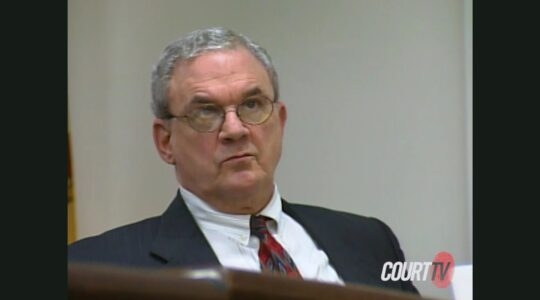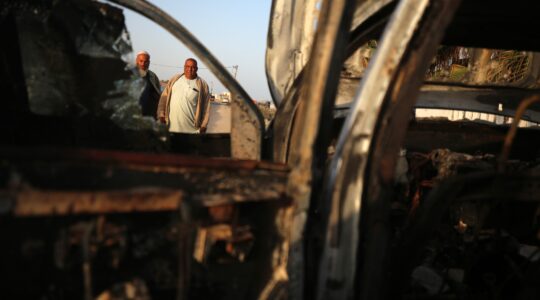JERUSALEM, October 31 (JTA) The president of the World Jewish Congress has come out in favor of unilateral separation between Israel and the Palestinians, drawing a stern rebuke from the Israeli president.
In a speech at this week’s WJC plenary in Jerusalem, Edgar Bronfman called on Israel to withdraw from settlements in the West Bank and Gaza Strip, put a fence between itself and its neighbors and tell the Palestinians, ” ‘Look, you do what you want to do, but don’t cross the line.’ “
The suggestion approximates the plans for “unilateral separation” advanced by former Prime Minister Ehud Barak and other members of the Labor Party when negotiations with the Palestinian Authority collapsed.
“If there is no peace, this is what I suggest Israel should do,” Bronfman told some 800 WJC delegates gathered for the plenary’s opening session at the Jerusalem Theater. He said that settlements in the West Bank and Gaza should be given to the Palestinian Authority in exchange for other land, and a new boundary should be drawn.
Palestinians who cross that fence should be jailed, he said, and if the Palestinians persist in sending suicide bombers, “we will devastate the enemy. We have to put the high moral ground back where it belongs.”
Bronfman’s plan was criticized immediately by Israeli President Moshe Katsav.
Katsav said the 13-month-old intifada began not because of settlements, but because of conflicts over the Temple Mount and the “right” of Palestinian refugees to return to Israel.
Bronfman acknowledged the oddity of his position, as an American visiting Israel, to offer such sweeping suggestions to the Jewish state.
“I am an American with an American passport, and I am going back in a few days,” he said.
Mendel Kaplan, chairman of the WJC executive board, told Bronfman that “as a manufacturer of fencing, it would be commercially very profitable for me to have your policies carried out. But, as you said, you are leaving Jerusalem on Friday, and it is much more complicated than that.”
Kaplan said his children live on a street that is Jewish on one side and Arab on the other.
“They are three meters apart,” he said. “We have to find a solution of living together.”





